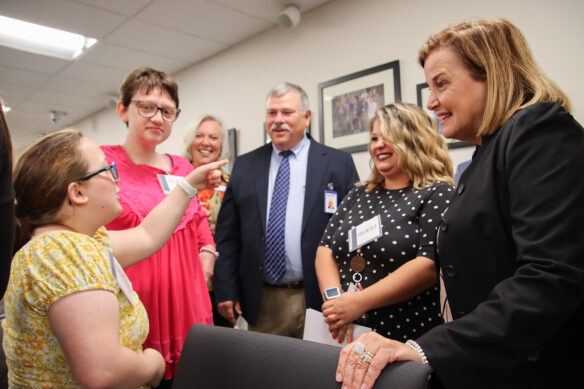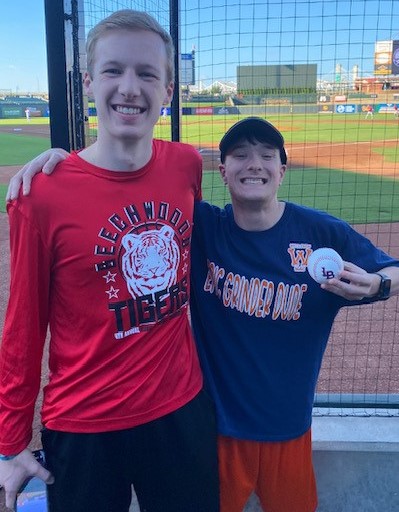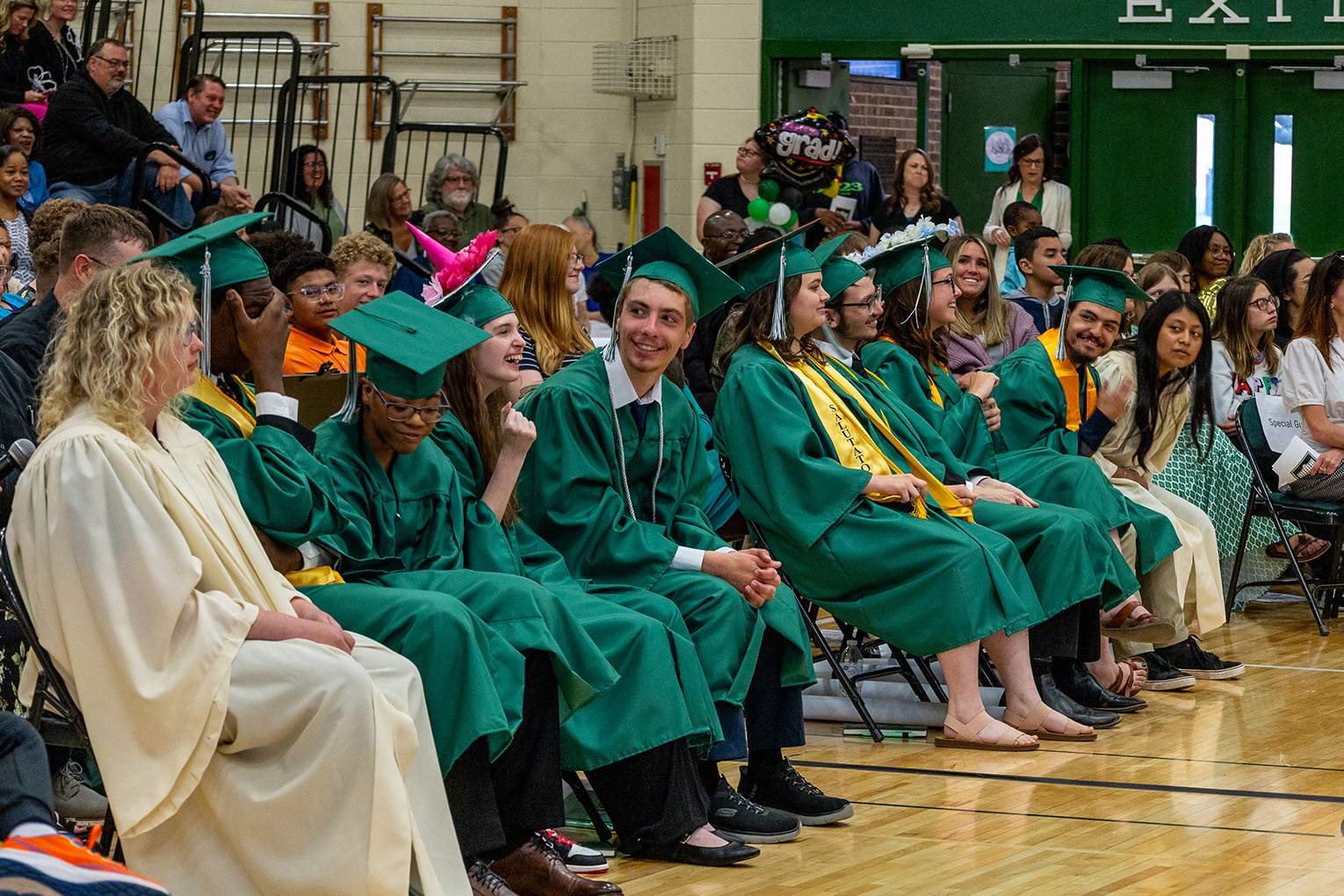
Interim Commissioner of Education Robin Fields Kinney talks with participants in the Special Olympics Kentucky Unified Champion Schools initiative during the Kentucky Board of Education meeting in October.
Photo by Joe Ragusa, Oct. 11, 2023
Stories like that of Macgregor Hansgen, a Special Olympics athlete, show the importance of Special Olympics Kentucky (SOKY) and its Unified Champion Schools program.
“I love playing Unified Sports with Special Olympics Kentucky because I have met many great people, and they socialize with me. We are great teammates, and we make a great team,” Hansgen said.
Unified Sports bring Special Olympics athletes together with athletes outside special education.
Hansgen started participating in SOKY in 2018 while he was a student at Westport Middle School (Jefferson County). He then continued as an athlete in high school and participates in Unified cornhole and basketball as well as track and field at the University of Louisville.
“By playing Unified Sports, I have learned how to encourage people while playing sports,” said Hansgen. “I have learned the rules of each game that I have played. I have learned how to play new sports such as running a relay in track and playing cornhole.”
SOKY provides sports training and athletic competition in a variety of Olympic-type sports for children and adults with intellectual disabilities. Partnered with the Unified Champion Schools initiative, it strategically supports youth with and without intellectual disabilities in inclusive sports and youth leadership and in engaging the whole school.
The United Champion Schools initiative is a Special Olympics program offered on the state level and supported with funding by the U.S. Department of Education. SOKY assists schools in Kentucky with implementing the three pillars of a Unified Champion School:
- Inclusive sports – These schools include Unified Sports programs such as interscholastic/Kentucky High School Athletic Association (KHSAA) Unified Sports, Unified physical education or Unified intramurals, and Special Olympics Unified Sports. Inclusive sports support all ages. Special Olympics Young Athletes has an inclusive play activity program for ages 2-7.
- Youth Leadership – Students with and without intellectual disabilities at these schools work together to lead and plan advocacy, awareness, Special Olympics and other inclusive activities throughout the school year.
- Whole School Engagement – These schools hold awareness and education activities that promote inclusion and reach the majority of the school population.
There are more than 9,000 schools that participate in Unified activities across the United States, and Kentucky has over 90 that participate.
Students from Unified Champion Schools came to Frankfort and spoke about the initiative during the Kentucky Board of Education meeting on Oct. 10-11.
“There are so many Special Olympians around the world who are doing amazing things thanks to the opportunities they had through Special Olympics and Unified Champion Schools,” said KBE Vice Chair Lu S. Young.
Throughout the years as a SOKY athlete, Hansgen has been able to make lifelong friendships and memories.
“The first year I played Unified basketball at (the University of Louisville), I met my friend Ben, a UofL medical student,” said Hansgen. “Ben is nice. He encouraged me when we played basketball together.”

Special Olympics Kentucky (SOKY) and its Unified Champion Schools program help bring together Special Olympics athletes like Mac Hansgen, right, with athletes outside special education. There are more than 9,000 schools that participate in Unified activities across the United States, and Kentucky has over 90. Throughout the years, Hansgen has been able to make friendships and memories through the program, such as attending a Louisville Bats game with a University of Louisville student, left.
Hansgen said he’s been able to build numerous other friendships over the last few years, friendships that include supporting one another in games and celebrating birthdays together.
Shiloh Stanley, a special education teacher at Paint Lick Elementary School in Lancaster, Ky., said Unified Sports have made a positive impact on students, and on more than just the students in her classroom.
“I have seen such a huge change in our school culture since introducing Unified opportunities at our school,” said Stanley. “The general education students have become so inclusive and truly treat the students in my class the same way they would anyone else.”
Stanley said her students gather weekly in peer groups of both students with and without an intellectual disability, an opportunity that allows them to spend time together, practice sports and occasionally eat meals and do crafts together.
“It has helped us to see how they’re not all that different from us, they’re actually very similar,” said Eli Lamb, a 5th-grade student participant at Paint Lick Elementary. “Everyone thinks they’re so different and I’ve been very surprised by them. Their disability isn’t a weakness, it’s a superpower.”
On building relationships inside and outside of the classroom, Ashton Jennings, another 5th-grade student participant at Paint Lick Elementary said, “I have realized that they’re just like us and I hate the way people use bad words to describe them as an insult or negatively when their disability is not a negative thing.”
Stanley said that whether it’s simply saying “hi” or giving special education students a hug when they pass them in the hallway or seeking them out to play with them on the playground, “the students at Paint Lick Elementary have embraced the culture of inclusion and everyone is loving it.”




Leave A Comment